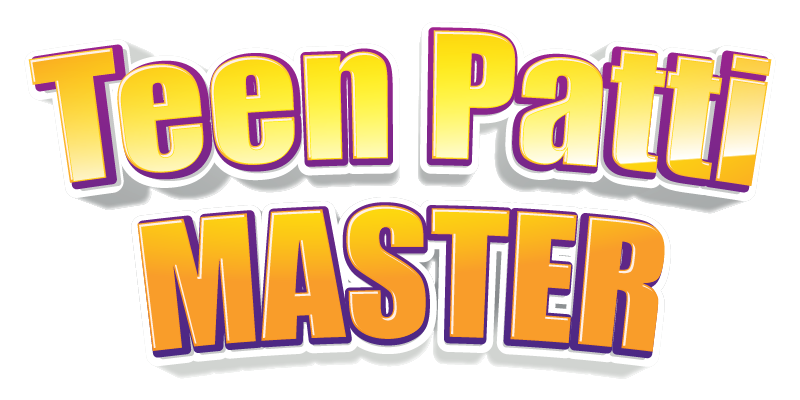TP Master Secrets: Your Winning Guide
Decoding the TP Master Landscape
What is a TP Master ? – Role & Responsibilities
A Technical Product Manager, often referred to as a TP Master, is a pivotal role bridging the gap between business strategy and technical execution. They aren't simply defining what to build, but deeply understanding how it will be built. Responsibilities include defining product roadmaps, prioritizing features, writing technical specifications, and collaborating closely with engineering teams. The role demands a unique blend of technical acumen, product sense, and leadership skills. Many find success utilizing resources like tp master guides and communities to accelerate their learning.
Why is the TP Master Role Gaining Prominence? – Market Trends
The increasing complexity of modern software development is driving the demand for TP Masters. Organizations need individuals who can navigate intricate technical landscapes, make informed decisions about architecture, and ensure alignment between business goals and engineering capabilities. The shift towards agile methodologies and rapid iteration further highlights the need for a dedicated technical voice in product management. The popularity of games like Teen Patti Master showcases the need for skilled product managers in the gaming space, demanding individuals who understand both user experience and the underlying technology.
Who is this Guide For? – Target Audience
This guide is designed for anyone interested in pursuing a career as a TP Master, regardless of their current experience level. Whether you are an aspiring product manager looking to specialize, a junior TPM seeking to refine your skills, or an experienced professional aiming to elevate your expertise, you’ll find valuable insights here. Even exploring resources related to teen patti ma can offer insights into successful product development in a competitive market.
Setting Expectations – What You’ll Learn
This guide will provide a comprehensive overview of the TP Master role, covering foundational skills, the entire product lifecycle, advanced techniques, essential tools, and interview preparation. You'll learn how to effectively collaborate with engineering teams, make data-driven decisions, and ultimately deliver successful products. We'll also touch on how to find and utilize resources, including information related to master game download platforms, to stay ahead of the curve.
Foundational Skills: The Core Competencies
Technical Proficiency – Deep Dive into Core Technologies
A strong technical foundation is non-negotiable for a TP Master. This doesn't necessarily mean being able to code, but it does require a solid understanding of core technologies like APIs, databases, and cloud infrastructure. You should be able to discuss technical trade-offs intelligently and understand the implications of different architectural choices.
Product Sense – Defining & Validating Product-Market Fit
Product sense is the ability to understand customer needs, identify market opportunities, and define products that solve real problems. This involves user research, competitive analysis, and a keen eye for design. Understanding the mechanics of popular games, like those found when searching for tirupati master, can provide a practical understanding of product-market fit.
Communication & Influence – Stakeholder Management & Alignment
TP Masters spend a significant amount of time communicating with various stakeholders, including engineers, designers, marketers, and executives. The ability to articulate complex technical concepts in a clear and concise manner, and to influence without authority, is crucial for success.
Data Analysis – Leveraging Metrics for Informed Decisions
Data is the lifeblood of product management. TP Masters must be proficient in analyzing data to identify trends, measure performance, and make informed decisions. This includes defining key metrics, building dashboards, and conducting A/B testing.
Problem-Solving & Analytical Thinking – Root Cause Analysis & Solution Design
The ability to break down complex problems into smaller, manageable parts, identify root causes, and design effective solutions is essential. This requires strong analytical thinking skills and a systematic approach to problem-solving.
Mastering the TP Lifecycle: From Ideation to Launch & Beyond
Ideation Phase - Identifying Opportunities & Defining Problems
User Research & Competitive Analysis Techniques
Understanding your target audience and competitive landscape is paramount. Utilize surveys, interviews, and usability testing to gather user feedback. Analyze competitor products to identify strengths, weaknesses, and opportunities for differentiation.
Prioritization Frameworks
Not all ideas are created equal. Use prioritization frameworks like RICE (Reach, Impact, Confidence, Effort) or MoSCoW (Must have, Should have, Could have, Won't have) to objectively evaluate and prioritize features.
Planning & Roadmapping - Building a Strategic Plan
Agile Methodologies – A TP Master’s Perspective
TP Masters are often deeply involved in agile development processes. Understanding Scrum and Kanban, and how to adapt them to your specific context, is critical.
Defining and Tracking KPIs & OKRs
Key Performance Indicators (KPIs) and Objectives and Key Results (OKRs) provide a framework for measuring progress and ensuring alignment with business goals.
Development & Execution – Partnering with Engineering
Technical Specifications & Documentation Best Practices
Clear and concise technical specifications are essential for ensuring that engineering teams understand what needs to be built.
Risk Management & Mitigation Strategies
Identify potential risks early on and develop mitigation strategies to minimize their impact.
Launch & Iteration – Measuring Success & Driving Improvement
A/B Testing & Experimentation
A/B testing allows you to compare different versions of a feature to see which performs better.
Post-Launch Analysis & Feedback Loops
After launch, analyze data to measure performance and gather user feedback. Use this information to iterate on the product and make improvements.

Advanced TP Master Techniques: Taking Your Skills to the Next Level
Technical Architecture Understanding – How to Speak the Language of Engineering
Go beyond the basics and develop a deeper understanding of technical architecture. This will enable you to have more meaningful conversations with engineers and make more informed decisions.
Systems Thinking – Identifying Interdependencies & Potential Bottlenecks
Systems thinking is the ability to see the big picture and understand how different parts of a system interact with each other.
Influence Without Authority – Building Consensus and Driving Alignment
TP Masters often need to influence stakeholders who don't report directly to them. Building trust and rapport is key.
Cross-Functional Collaboration – Working Effectively with UX, Marketing, Sales, etc.
Success requires collaboration with a wide range of teams.
Handling Ambiguity & Turning Chaos into Clarity
The world of product management is often ambiguous. TP Masters must be comfortable navigating uncertainty and bringing clarity to complex situations.

Tools & Technologies: The TP Master's Toolkit
Project Management Tools – Best Practices
Mastering project management tools is essential for staying organized and tracking progress.
Data Analytics Tools – Practical Applications
Being able to analyze data is critical for making informed decisions.
Collaboration & Communication Tools – Optimizing Workflow
Effective communication is key to success.
Prototyping & Wireframing Tools – Rapid Iteration
Prototyping tools allow you to quickly visualize and test ideas.
The TP Master Interview: Landing Your Dream Role
Common Interview Questions & How to Prepare
Prepare for questions about your experience, technical skills, and problem-solving abilities.
Behavioral Questions – Showcasing Your Experience
Use the STAR method (Situation, Task, Action, Result) to answer behavioral questions.
Technical Questions – Demonstrating Your Understanding
Be prepared to discuss technical concepts and trade-offs.
Case Study Preparation – Thinking on Your Feet
Practice solving case studies to demonstrate your problem-solving skills.
Negotiating Your Offer – Knowing Your Worth
Research salary ranges and be prepared to negotiate your compensation.
Resources & Continuous Learning: Staying Ahead of the Curve
Recommended Books & Articles
Stay up-to-date on the latest trends and best practices.
Online Courses & Certifications
Invest in your professional development.
Industry Communities & Events
Network with other TP Masters and learn from their experiences.
Staying Updated on Emerging Technologies & Trends
The technology landscape is constantly evolving. Be curious and embrace lifelong learning. Even exploring games like Teen Patti Master can offer insights into user behavior and product innovation.

